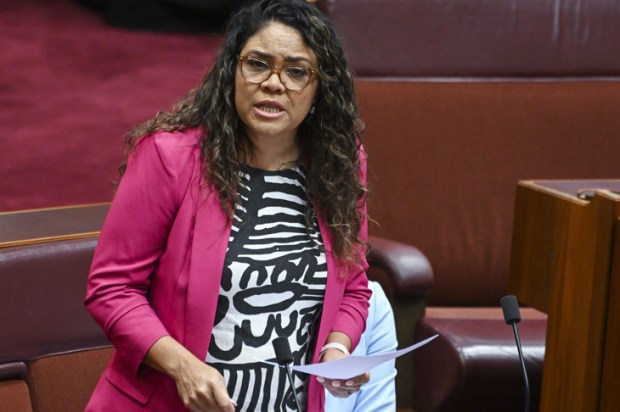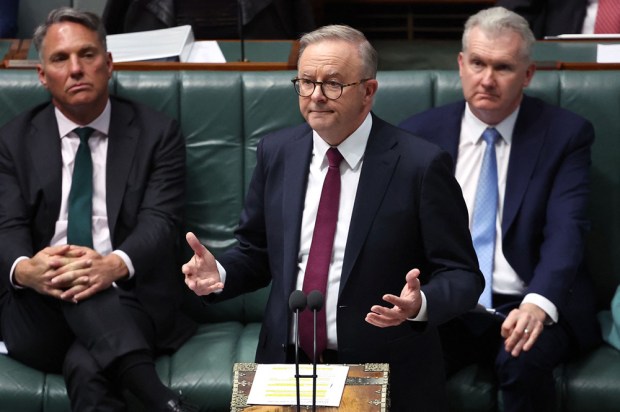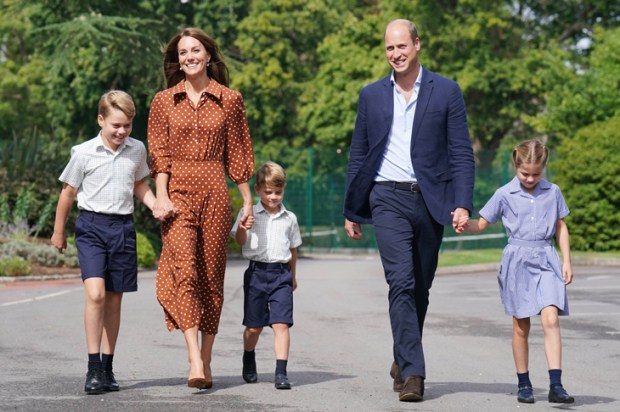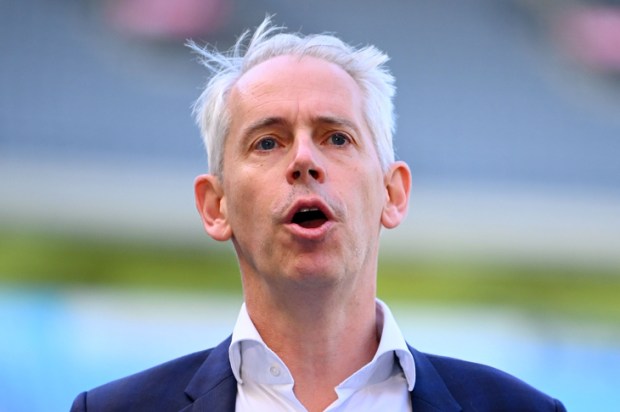This is the second time Malcolm Turnbull has led a national political campaign. The first one ended in tears. This campaign appears to be headed the same way, a soulless auction of borrowed money by two spendthrift assassins, with so much of what was achieved over six hard years under Tony Abbott’s leadership to be pointlessly squandered. Because its conservative core will always fight against excesses (profligacy, gender fluidity in schools, open borders etc), the return of the Coalition remains preferable − unless you believe that only the harsh purgative of defeat will ensure the reform of the Liberal Party.
Just as in the September coup, the commentariat greeted Turnbull with unbridled euphoria in 1999. The result was a defeat of landslide proportions – nationally, all six states and 72 per cent of all electorates. Even before the Western Australian results came in, Turnbull slammed John Howard with the almost deranged claim that if he were to be remembered for anything, it would be as the man who ‘broke the nation’s heart’.
Yet the stars had seemed perfectly aligned: matrimonial problems among the younger royals, the death of Diana, the Centenary of Federation, a new century, a new millennium and, curiously, the Olympic Games. Unlike the monarchists, Turnbull had no need for a vast army of foot soldiers − he had the Labor Party and the ACTU. He had vast funds, big business and the elites, with large numbers of Liberal politicians jumping onto his bandwagon. Nearly all mainstream media were enthusiastically for him. Alan Jones, almost alone, gave an unforgettable response to his callers: ‘If you don’t know, vote no.’ Even Turnbull would have struggled to afford to buy the extraordinary support the commentariat showered him in 1999 and again in 2015. But to paraphrase Humbert Wolfe:
‘You cannot hope to bribe or twist (thank God!) the Aussie journalist. But, seeing what the scribe will do unbribed, there’s no occasion to.’
‘I have rarely attended elections in any country, certainly not a democratic one, in which the newspapers have displayed more shameless bias,’ wrote Lord Deedes, a former British Cabinet Minister and editor of London’s Daily Telegraph. ‘One and all, they determined that Australians should have a republic and they used every device towards that end.’
As for Turnbull, Graham Richardson’s assessment is that every time he enters a room, he believes he is the smartest person in it. Turnbull confuses being ‘bright’ with being ‘smart’, says Richardson. While Turnbull is ‘certainly bright, he is not very smart’.
Put in other words, he too often lacks common sense − just think back to 2009 and of Godwin Grech, OzCar and his support for Rudd’s ETS. Nor has his being Prime Minister been different. It was against commonsense to put so much on the table then whisk it off, e.g., negative gearing, a 15 per cent GST and state income taxes. Worse, there is this double dissolution election, where he is risking everything pointlessly for legislation he has Buckley’s chance of getting through.
The current burning issue of superannuation is yet another example. His changes are absolutely unnecessary – the creation of large superannuation funds for tax minimisation is a thing of the past. Restrictions are already in place which curb this. But just assume that the policy is right. No one with any political common sense would impose this at virtual gunpoint as if he were a son of Mussolini making the trains run on time. Discussion and consultation over time, leading to a hopefully bipartisan conclusion, are the required minimum. The very last thing a leader with common sense would do would be to slip this into a budget and then rush off to an election.
Even now, Turnbull has the chance to retreat, just as he did with that ludicrous backpacker tax. Instead, he is arrogantly holding on to what is an atrocious policy, willing to unseat many a Liberal politician for the sake of his pride. (Are you listening Wyatt Roy?) No wonder revolt is in the air. This is not some innocuous knighthood affecting no one. Financial advisors and accountants are, by the very fact of their sending out a stream of warnings and advice across the nation, inadvertently campaigning against the Turnbull government.
It was the same in 1999. He and Gareth Evans frequently outraged the direct electionists in the Constitutional Convention ‘politburo’. This, the resolutions committee, consisted of ten warring republicans, a republican chairman and a republican deputy chairman, all with two bemused constitutional monarchists. On one occasion Turnbull went so far that the direct electionists threatened a walk-out of the Convention, which would have nipped republicanism in the bud for many a year. This was only avoided by my predecessor, Justice Lloyd Waddy, generously mediating in this republican fight.
Turnbull feared the monarchists would play politics so that the unpopular McGarvie model would go to the referendum; we never did. Later, when Kerry Jones, David Elliott and I were heading to Parliament for a hearing on the referendum bill, we saw a worried Malcolm Turnbull leaving, pursued by an army of journalists. At the hearing, we argued that the referendum question should describe not only the appointment but also the dismissal of the president which, alone in the world, could be done by the prime minister− without grounds, without notice, and without appeal. We later learned that, no doubt influenced by focus groups, Turnbull had proposed that two words be removed from the question. One was ‘President’. The other was, believe it or not, the word ‘republic’. Even the republican press ridiculed this.
An absence of a goodly amount of common sense is one thing. The other is that Turnbull is clearly not as wedded, as Tony Abbott, John Howard and Cory Bernardi are, to the principles on which Sir Robert Menzies founded the Liberal Party. According to a number of senior members of the Labour Party, he actively sought a safe Labor seat after the referendum. A confirmed member of the church of climatology, he offers only lukewarm resistance to the increasingly bizarre programmes the neo-marxists would foist on us. After the election, the parliamentary party, or at least those left, must restore the Liberal Party to its true path. Otherwise they will be replaced.
The post Turnbull’s Judgement (Day) appeared first on The Spectator.
Got something to add? Join the discussion and comment below.
Get 10 issues for just $10
Subscribe to The Spectator Australia today for the next 10 magazine issues, plus full online access, for just $10.
You might disagree with half of it, but you’ll enjoy reading all of it. Try your first month for free, then just $2 a week for the remainder of your first year.













Comments
Don't miss out
Join the conversation with other Spectator Australia readers. Subscribe to leave a comment.
SUBSCRIBEAlready a subscriber? Log in